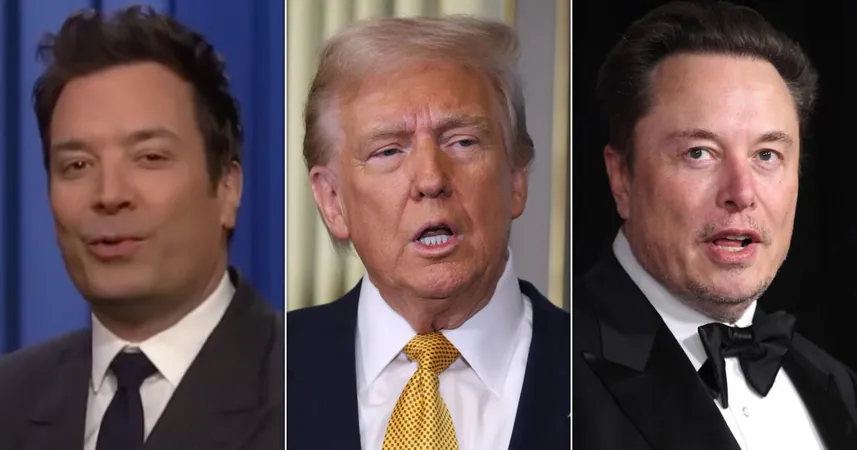
FIA's Controversial Statute Changes Spark Outrage Among Member Clubs
2024-12-13
Author: Benjamin
Overview of Controversial Changes
In a bold move that has ignited significant backlash, Formula 1's governing body, the FIA, recently approved contentious changes to its statutes, deemed by critics as a “worrisome concentration of power.” The decision, made during the FIA general assembly held in Rwanda, was passed with overwhelming support, garnering approximately 75% approval for amendments related to the ethics and audit committees.
Concerns Raised by Member Representatives
Thierry Willemarck, president of the Royal Touring Club of Belgium, voiced his apprehensions ahead of the vote, arguing that the modifications could undermine accountability within the FIA. Willemarck stated, “It is a concentration of power that we have to be worrisome about,” highlighting how these changes could centralize control within a select leadership team, specifically the FIA president and the president of the FIA senate—both of whom are allies.
This year has seen significant scrutiny of the FIA, especially concerning various allegations surrounding the conduct of FIA president Mohammed Ben Sulayem, which the ethics and audit committees have investigated. The timing and nature of these amendments have led many to question the motivations behind them.
Calls for Transparency and Governance Reform
David Richards, chairman of Motorsport UK, also raised concerns prior to the vote. He emphasized not only the potential implications of the changes but also the process by which they were introduced. “This is a fundamental debate about how governance should work within the FIA,” Richards argued, calling for greater transparency in future decision-making processes.
Willemarck pointed out that, ideally, an independent audit committee should report to the senate, and its members should be approved by the general assembly. He stressed the importance of allowing general assembly members to refer doubts about practices to the audit committee to facilitate independent inquiries, which is considered standard practice for organizations worldwide.
Circumvention of Standard Practices?
Interestingly, both Willemarck and Richards noted that the FIA’s statute review commission appeared to have been circumvented in the development and approval of these changes. The amendments were put to an e-vote among world council members without prior discussion before the general assembly, raising further red flags about governance practices.
While Willemarck acknowledged that the process was not illegal—since it is not mandatory for changes to go through the review commission—he expressed intentions to “benchmark” the new FIA statutes against those of other organizations to identify key differences and highlight best practices.
Dissatisfaction Among Member Clubs
The dissatisfaction is palpable among various member clubs, particularly those from Belgium, Britain, and Austria, with a burgeoning wave of discontent surfacing across European FIA member clubs. Interestingly, the votes against the ethics changes comprised 24.51%, while the audit committee changes faced 23.83% opposition, signaling a notable discontent among voting members.
Looking Ahead
As the FIA moves forward with these controversial decisions, the road ahead may become increasingly rocky, with an entire community of motorsport advocates urging for accountability, transparency, and a balanced power structure within one of the world’s most prestigious motorsport governing bodies. Will the FIA heed the calls for reform, or will these contentious changes set a precedent for future governance? Only time will tell!









 Brasil (PT)
Brasil (PT)
 Canada (EN)
Canada (EN)
 Chile (ES)
Chile (ES)
 España (ES)
España (ES)
 France (FR)
France (FR)
 Hong Kong (EN)
Hong Kong (EN)
 Italia (IT)
Italia (IT)
 日本 (JA)
日本 (JA)
 Magyarország (HU)
Magyarország (HU)
 Norge (NO)
Norge (NO)
 Polska (PL)
Polska (PL)
 Schweiz (DE)
Schweiz (DE)
 Singapore (EN)
Singapore (EN)
 Sverige (SV)
Sverige (SV)
 Suomi (FI)
Suomi (FI)
 Türkiye (TR)
Türkiye (TR)